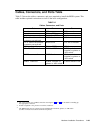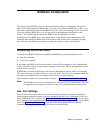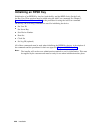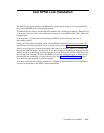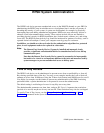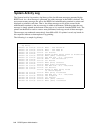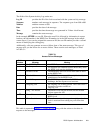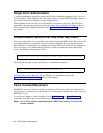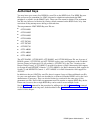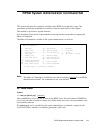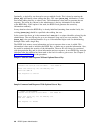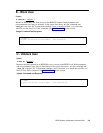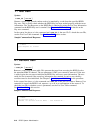
The fields of the System Activity Log entries are:
Log ID
provides the ID of the Lock associated with the system activity message.
Sequence
numbers each message in sequence. The sequence goes from 000 to999
Number and then restarts at 000.
Date
provides the date of the message.
Time
provides the time the message was generated in 24 hour clock format.
Message contains the status message.
In the example, KEY20 is a user ID. Where the user ID is followed by information in square
brackets, the information is the RPSD User ID number (as in the fifth message in the sample
screen above). Users can be assigned the same user ID; the user ID number provides a second
means of identifying the calling party.
Additionally, calls may generate an access failure form of the status message. This type of
message tells you the reason for an access failure. There are nine such messages, as listed
in Table 3-1.
TABLE 3-1
Access Failure Messages
Code
Status
Number Message
Meaning
1
2
3
4
5
6
7
8
9
No RPSD/Key Detected
No RPSD Key was detected on the caller's line.
No Response
No response was returned from the RPSD Key when
the RPSD Lock sent the challenge.
Invalid User ID
The RPSD Key user’s ID is not in the table of users
on the RPSD Lock.
Blocked User
The RPSD Key user was deliberately blocked by the
administrator on the RPSD Lock.
Invalid Response The RPSD Key responded to the RPSD Lock’s
challenge, but the response was incorrect.
Outgoing Call
An outgoing call is being placed. The Lock forces a
disconnect in order to make an
outgoing call
Ring - No Answer
The RPSD Lock rang the modem, but the modem
did not answer the call.
Force Disconnect
A Force Disconnect command was issued to the
RPSD Lock.
Time Restriction
The call was received during a time of day when the
Lock is restricted from taking any calls from that
user.
This table is repeated in Chapter 5, Troubleshooting, along with the actions to be taken in
response to the messages.
RPSD System Administration
3-3



